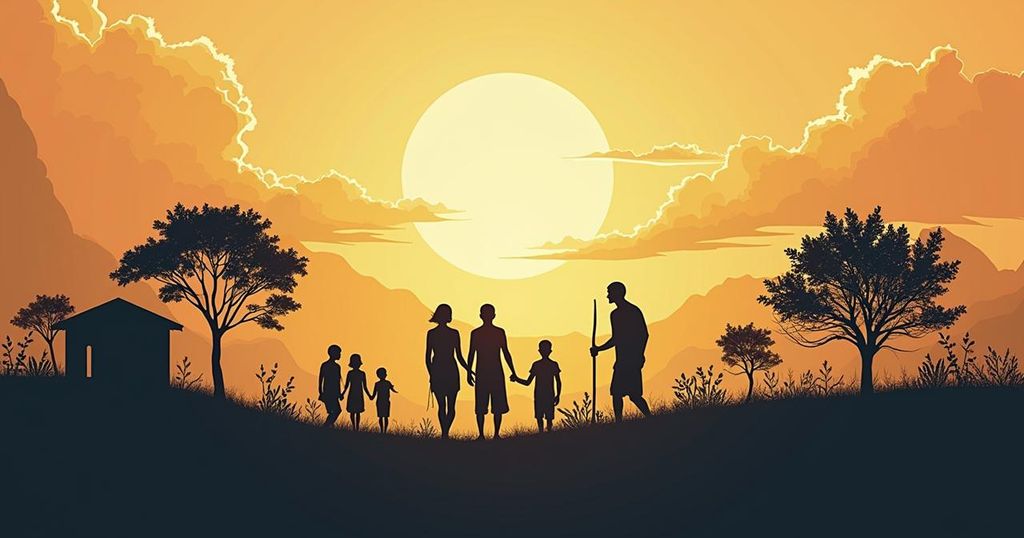Confronting Climate Change: The Real Challenge Behind Sustainable Development Goals
The article highlights the failures in achieving Sustainable Development Goals (SDGs) by 2030, attributing much of the blame to climate change while critiquing the practices of those in power, particularly the deforestation in Liberia. It illustrates the economic and social ramifications and emphasizes the need for good science and electoral reforms to address entrenched poverty and instability.
As the year 2030 approaches with only a mere 17% of the Sustainable Development Goals (SDGs) achieved, global experts are increasingly attributing these disappointing outcomes to climate change. They assert that adverse weather conditions are obstructing progress towards anticipated objectives, particularly affecting 95% of nations in the Global South. The reality is that those in power are largely engaged in practices such as deforestation instead of necessary reforestation, using representatives like the Secretary General of the United Nations to convene additional global assemblies that deflect responsibility towards climate change for the setbacks in achieving the SDGs. Wealthy nations, exemplified by Saudi Arabia, facilitate these efforts which many perceive as a facade. Even renowned global artists, like Akon, have lyrically criticized this situation in his song “Blame It on Me.” However, the prevailing powers refuse to accept accountability, instead shifting the narrative solely towards climate change impacts. In Liberia, deforestation has manifestly contributed to ecological imbalances, leading to wildlife invasions and community floods, which have tragically resulted in casualties. The lack of proper educational infrastructure—illustrated by students sitting on bare ground—contrasts sharply with Liberia’s wealth of high-grade logging species, obstructing the country’s potential for educational advancement. Such educational deficits severely hamper economic growth and development, thereby perpetuating widespread poverty. This poverty frequently serves as a catalyst for violence, which can escalate into scenarios such as coups d’état or civil wars. A 2022 study by Afrobarometer revealed that many Liberians believe their country is heading in a detrimental direction, reflected in both local and global poverty trends observed by Thomas Piketty in his 2022 publication. The cycle of eroding poverty can only be addressed through the application of sound scientific principles, as opposed to ineffective methods. Good science fosters awareness that empowers citizens to engage with the Rule of Law, ultimately resulting in a transformation of the current unfair electoral system into one that is equitable and sustainable. Such electoral reforms are imperative to ensure the selection of individuals with commendable records who can advance justice—an essential element for establishing lasting peace and sustainable progress in Liberia and beyond.
This article discusses the challenges facing global efforts toward achieving the Sustainable Development Goals (SDGs) by 2030, particularly highlighting how climate change is being portrayed as the primary obstacle. It delves into the environmental issues in Liberia, emphasizing the impact of deforestation and the subsequent social and economic ramifications. The narrative suggests systemic flaws in the political and economic infrastructure that exacerbate poverty and social unrest, while advocating for a shift towards sound scientific practices and electoral reforms as solutions to these crises.
In summary, as the deadline for the Sustainable Development Goals approaches, it is evident that climate change is frequently blamed for inadequate progress. However, it is critical to recognize the underlying issues, including deforestation and poor governance, which contribute to prolonged poverty and instability. Without addressing these systemic problems through good science and reformative electoral practices, true progress remains elusive. To foster justice, peace, and development, countries like Liberia must confront these challenges head-on, allowing for a transformative path to a more equitable future.
Original Source: frontpageafricaonline.com




Post Comment